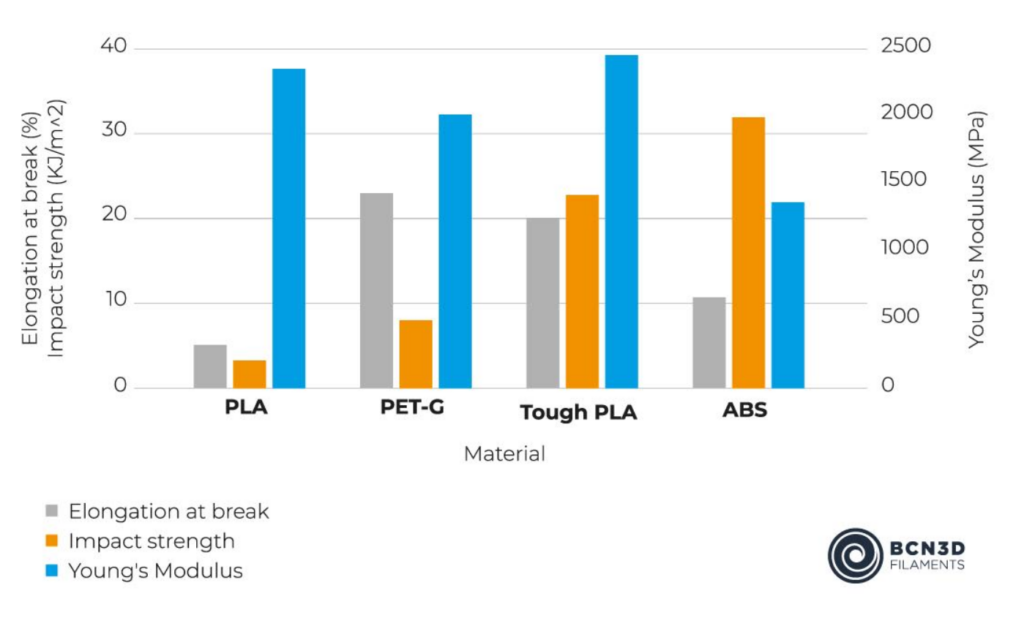polyethylene terephthalate glycol
PETG
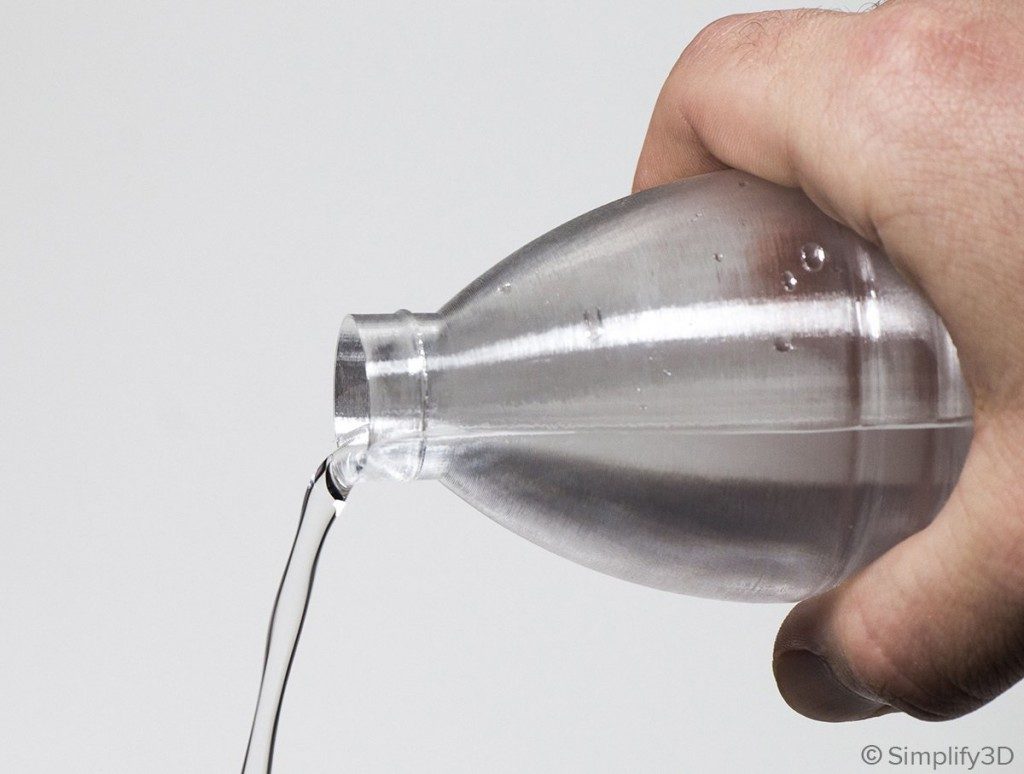
Easy to Print
- Good bed adhesion
- Good layer adhesion
- Reduced shrinkage
- Reduced warping
Things to keep in mind:
- Avoid humid climates
- Practice good filament storage
- Remove filament when not being used
Temperature
Recommended:
Nozzle: 240C
Bed: 90C
*Requires Heated Bed
Other Options:
First Layer Nozzle: 230C
First Layer Bed: 85C
Suitable in Most Applications
Tensile Strength: 50Mpa
Material Behavior:
- Temperature resistant
- Good impact strength
- Hygroscopic (absorbs moisture)
- UV resistance
- Recyclable
- Food safe
- Flexible
Debugging Prints

Stringing
Typically seen as a result of high traffic movements.
PETG is more prone to stringing due to its high hygroscopic properties
How to fix: Dry filament before use
Main Causes:
- Retraction too low
- Temperature too high
- Moisture in filament
Clean up:
Apply light heat
*too much heat will melt your part!
Cut off zits

Supports
Support overhang angles less than 45 degrees
How to fix: Reslice and add supports
Recommended settings:
Style: Organic
Overhang Threshold: 45
Top Contact: 0.2
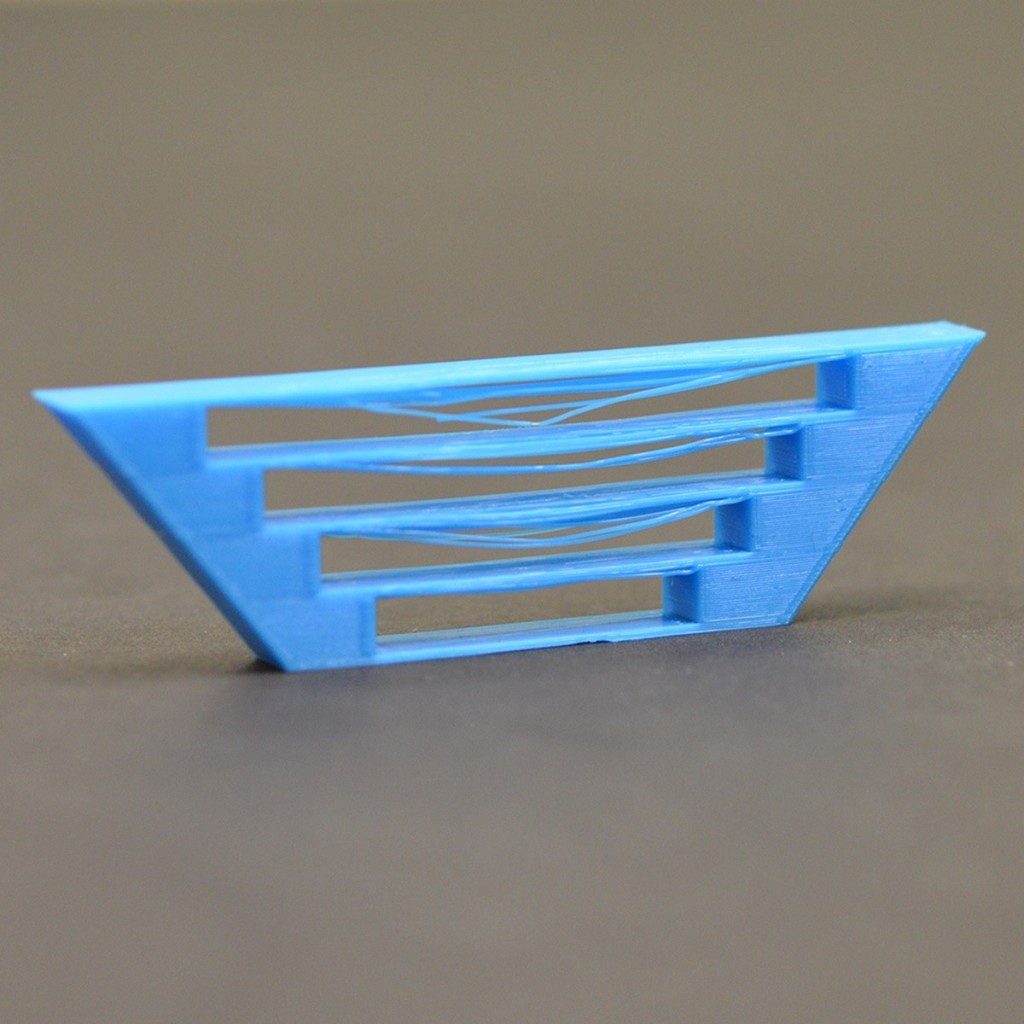
Bridging
Typically caused by temperature and print speed
*Time consuming-Takes some time to tune
How to fix:
Lower temperature
Lower print speed
*Requires a good ratio between the two
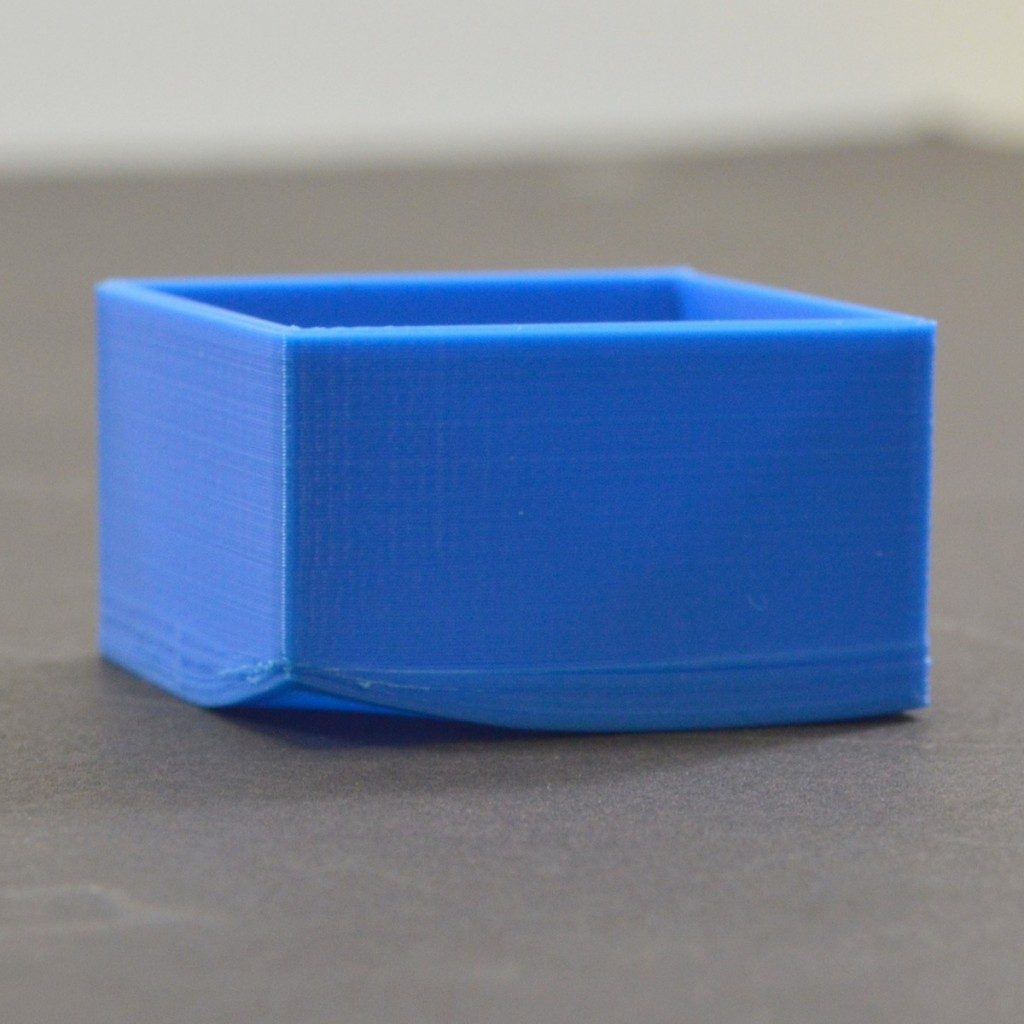
Warping
Typically caused by sharp corners and poor cooling
How to fix:
Insulate enclosure
Lower print speed
Lower temperature
Round sharp corners
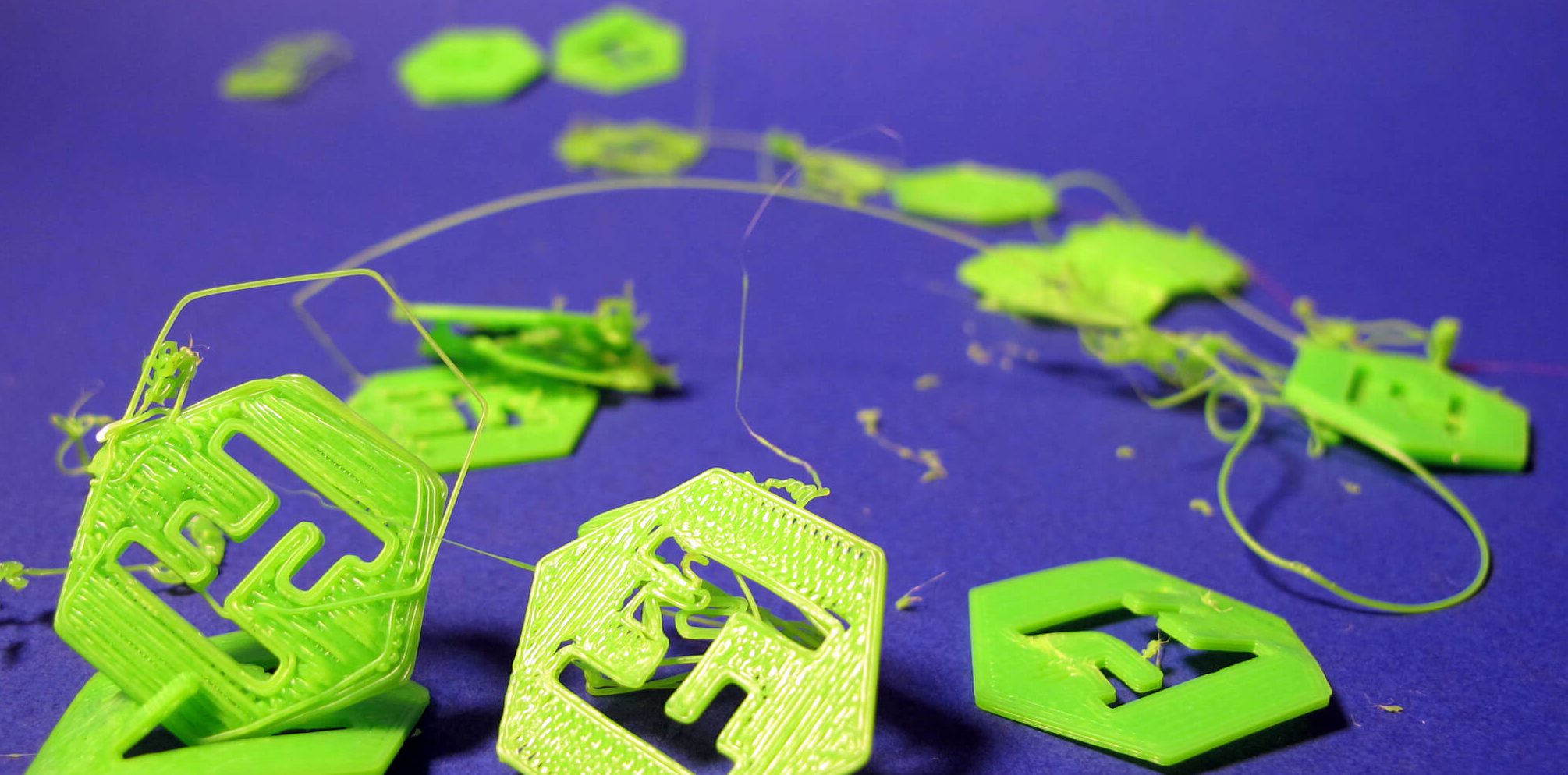
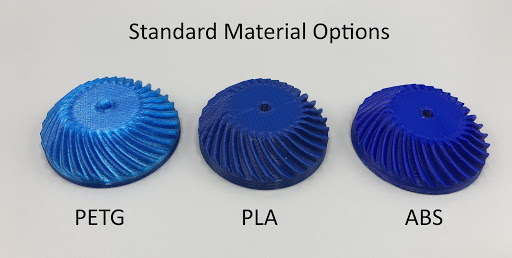
Next step (if needed):
Clean nozzle
Dry filament
Bed Adhesion
PETG sticks easily and may require adhesives to mitigate damage to the build plate
*DO NOT print on glass
What to use:
- Glue Stick*
- Painters Tape
- Hairspray
- Textured build plate
Main Causes:
- Poor contact area with the build plate*
- Bed leveling
- Print speed too fast
- Layer height too high
- Not enough cooling
- Residue on build plate*
- Nozzle clog
- Moisture in filament
*Most Common
How to Fix:
Add a brim
Slow down the print speed
Turn on the cooling fan/Lower the temperature
Clean the build plate
